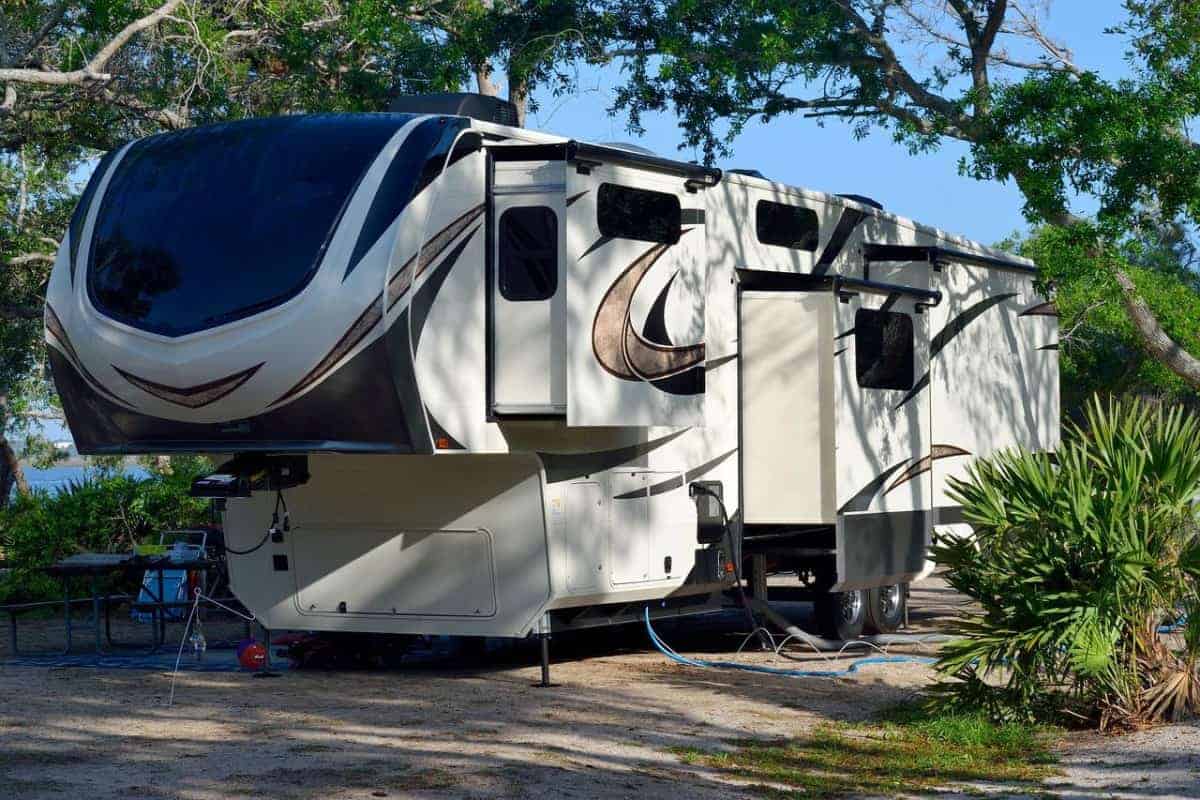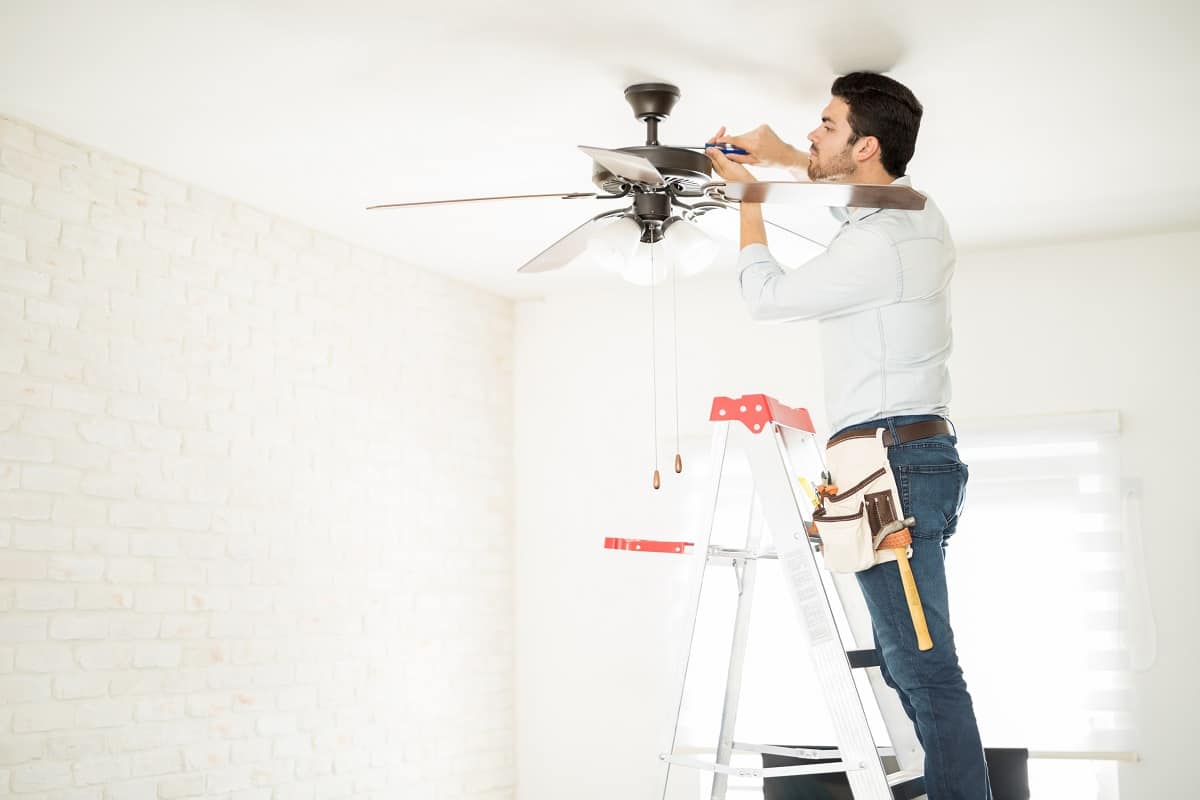Playing a new instrument is always an exciting experience, especially if you chose your first instrument to play. Children, especially, look forward to learning how to play a new instrument and discovering their passion and talent through it. However, the experience of you playing a new instrument depends on many things, including the quality of the instrument itself.
Finding the right banjo brand to shop from is nowhere near easy. Many reputable brands offer great quality products both for novice players and professionals. However, the great selection of instruments also leaves a lot of room for poor-quality brands to make their appearance and falsely advertise great quality products.
In this article, we want to tackle the features and traits of low-quality banjo instruments, regardless of their type. We’ll focus on both ukulele and guitar options and highlight the red flags when shopping for a new instrument. We’ll also detail five brands that don’t live up to their expectations whether it’s the materials, quality, customer service, or warranty satisfaction.
Continue reading with us, and we’ll also include what features to focus on when looking for banjo models coming from reputable and reliable brands and check out some alternatives that we will list.
Things to Look For With Banjo Brands to Avoid
A banjo made out of quality materials is worth buying and playing. Understandably, there are different kinds of banjo and all of them will sound unique in their way. However, it’s still easy to recognize when banjo doesn’t output the sound quality we’re looking for. Here are the red flags to look out for.
The Brand Is Not Reputable
The first thing you should look out for is the reputation of the brand. That’s more than easy to check out. If the brand is bad, you can easily google for it and check the Google reviews on whether they are prompt with answering the phone, whether their instruments have longevity and durability to last long, and others.
Things like warranty and customer reviews also make a part of how reputable the brand is. But, we’ll tackle the warranty bit a bit later. A reputable brand will be filled with 90% positive reviews across all the platforms like Amazon, Walmart, Newegg, and other companies. The forums and recommendation websites for banjos and other instruments should explode with positive reviews and recommendations.
If the brand is not much heard about and it doesn’t have its official website, there’s a possibility it’s not the place where you want to buy from.
Teachers Don’t Recommend It
This should apply to all instruments that you’re buying for yourself and your child. If you have a tutor or a teacher at a music school, you should primarily consult with them and other music professionals and experts. If you tell your teacher you’re eyeing an instrument from a particular brand and they say they don’t recommend it while giving the argumentation on why they don’t recommend it, it’s possible that it’s not the right brand to shop for from.
Predominantly Plastic Parts
Something that holds for all reputable banjo brands is that they are made of full solid wood, and no composites or plastic replacements. If your banjo of choice has parts such as a bridge made out of plastic, there’s a good chance that it’s not going to last long.
Like all instruments that have strings and include intensive playing, they’re under a lot of pressure. Cheap plastic materials can’t live up to their name and won’t last for a long time.
What you should especially focus on when getting a banjo is the neck. The neck should at no cost use composite wood or plastic because it’ll bend too fast, distorting the quality of the sound, while also making tuning more difficult.
It’d be a good thing if, like most modern banjos, this one also has a steel reinforcement part, instead of plastic.
Tuning Pegs Are Too Loose
Something that a lot of banjo experts complain about is the quality of tuning pegs of banjo brands. They complain that they’re too loose and free to move instead of being sturdy and fixed enough for tuning to be effortless and last long enough.
Tuning pegs being too loose means that you’ll have to constantly tune your instrument, which can discourage a lot of beginners and make them give up on playing, while irritating and frustrating the teachers and professionals.
No Warranty
Banjos may be more inexpensive compared to some other instruments, but it doesn’t mean that they shouldn’t have any warranty. Beginners need reliable instruments that will last them until they’re ready to move on from it and pick more professional options.
Still, a warranty that lasts more than 1 to 2 years is more than welcome, because some people don’t intend to go professional and want to practice banjo as a hobby. However, for some poor-quality brands, even one year is too much of a warranty.
While some brands provide long warranties in addition to customer satisfaction and testing period, some manufacturers that falsely advertise their banjos don’t even offer one year of warranty. You should steer clear from such brands.
Poor Customer Service
Imagine receiving a banjo that doesn’t look like what was advertised. Even worse, imagine using a poor-quality banjo for several months and then learning that the neck has bent or the pegs are broken. Imagine having any problem with your relatively new banjo and the customer service keeps shooing you away or not even answering the calls.
Customer service plays a great role in deciding whether some banjo brand is for you or not. Always contact customer support before buying a new instrument because there is a chance that they don’t know much about what they’re selling and are not as prompt with answering and assisting.
5 Banjo Brands To Avoid: Detailed Reviews
Now that you learned what you should focus on when shopping from unreliable banjo brands, here is a list of 5 banjo brands to avoid.
Disclaimer: All the content is purely informative and it doesn’t intend to offend or defame any brand or product. The article only contains information based on testing and reviews and serves to inform readers about what to focus on. The readers are still encouraged to buy a certain product while being aware of potential drawbacks.
Savannah
- Why avoid it: Poorly designed website with not enough information about each product. Short warranty. With some models, the sound is tinning and doesn’t travel far.
- Warranty: 1 year
- Customer service: Decent, but could be better
A lot of people probably won’t understand why this brand appeared as the first on this list. This brand makes ukuleles, mandolins, banjos and offers various parts to be purchased. Many beginners only praise this brand as one of the most beginner-friendly.
All banjo models this company provides look extremely stunning and modern. The glossy finish makes them feel even more premium, as well as the solid wood that is used on the device. All the materials are sturdy, durable, and feel just right.
The materials used are maple, mahogany, and aluminum alloy to reinforce the bridge. What’s also worth mentioning is the geared pegs which make tuning easier.
However, what’s disappointing is that only higher-end models come with a resonator that strengthens the sound and makes it travel longer. That being said, if you’re buying some more affordable model, you’ll feel like the sound is tinning and not sounding as good.
The website also seems a little disappointing. From such a reputable banjo brand from the market, one would expect a high-end website with a top-notch design. However, the website looks old and hard to navigate through.
The worst thing about the brand is the warranty. All products boast a 1 to 2 years warranty, with banjos being supported for one year. We understand that affordable models can’t have a longer warranty than one year. However, the worst thing is that the warranty is applicable only in the USA. Internationally, it depends on the vendor that sells it.
http://www.savannahacoustic.com/sb300.html
Mulucky
- Why avoid it: It doesn’t live up to its tune. The materials don’t feel as durable.
- Warranty: They offer a full refund in case it comes damaged. Unclear whether it’s a lifetime warranty.
- Customer service: Decent, but difficult to contact
If you’re looking for an inexpensive Amazon brand, Mulucky could be a great option for you. However, that applies only if you’re a beginner and want to get better at playing. It’s made out of not-so-durable materials. It has a resonator that helps it produce deeper, yet brighter sound but the materials it’s made with make it feel like it’s constantly under pressure.
What’s also important to note is that the pegs are of lower quality and require users to tune in the instrument now and then. With that in mind, some reports indicate that after just a few minutes of playing, they had to tune the instrument again and that it was impossible to tune it 100% leaving them with not so reliable and consistent sound output.
When it comes to warranty, this is where the brand excels. They offer full refunds or replacements if the customers are not satisfied. The customer service is constantly available in the written form and replies relatively fast, but if you want to give them a call, that’s way more difficult.
https://www.amazon.com/Mulucky-String-Banjo-Drumhead-Openback/dp/B087BS7VVV?th=1
Vangoa Banjo
- Why avoid it: Although materials are durable and of good quality, a poor drying process can lead to malfunctions that are extremely hard to repair.
- Warranty: 2 years.
- Customer service: Could be better
Vangoa banjos are usually quite affordable and customers are generally satisfied with most of their products. They are made with high-quality Sapele on both front and back, while some more premium models boast some other, more durable woods. They are also reinforced with steel alloy for more durability, while you can choose between a glossy and matte finish.
What we don’t like about the overall construction is that there’ve been reports by experts that the wood is not properly dried and that after a while, due to pressure, but also outside environmental conditions such as humidity and others can lead to the woods falling apart.
In some cases, the repair would be pricier than the instrument itself. As the woods would separate from the metal reinforcement, it’d require to file down the spurs which would tighten up the instrument and prevent any serious injuries as those spurs are quite sharp. This wood separation also causes the instrument to untune itself every then and now.
The instrument is indeed quite easy to tune. However, many times it’d require users to tune it as soon as they finished playing it, which gets annoying after a while.
The warranty is not the best, it lasts 2 years, but that’s still much better than some other models that don’t even offer a warranty.
https://www.amazon.com/Vangoa-String-Closed-beginner-Strings/dp/B07DGDQ18M
Washburn
- Why avoid it: Cheap quality materials and not living up to their tune.
- Warranty: 5 years but requires a hefty registration
- Customer service: Unavailable
Washburn instruments were always praised as highly reputable, but for the banjos, it’s not the case. Perhaps, this company is good for people who just want to play around and not learn anything new in particular, but anyone who plans to play more seriously should spend a bit more.
The banjo overall feels brittle and easy to chip and crack. Additionally, the neck is so loosely attached to the banjo that it feels as if it could be bent with ease. It should be handled carefully so that it wouldn’t break. What’s more is that the pegs are loose, causing the banjo to lose its tune quickly and need re-tuning particularly every time you start playing it.
The customer service is hard to reach and usually doesn’t respond to emails. It requires multiple calls before anyone would answer and assist on the matter.
The warranty lasting 5 years is great, especially because that pretty much covers the lifetime of products. However, the bad thing about this is that the user needs to register with the serial number and other things and contact the manufacturer through a retail seller which is more difficult.
https://www.washburn.com/instrument-style/banjo/
AKLOT
- Why avoid it: Poor peg quality, doesn’t live up to its tune.
- Warranty: 2 years
- Customer service: Good customer service
If you’re a beginner and want a reliable instrument that you won’t have to tune every time you grab your banjo to play, we don’t recommend AKLOT. Its instruments are amazing in sense of what kind of sound they produce. They make vibrant and bright sounds and are quite loud because of the resonator.
However, the peg quality is low. It’s like they invested most of its budget in the maple construction, as well as the quality of neck but left the pegs loose and unreliable. Some reports say that the pegs broke days and weeks after receiving.
The warranty of 2 years is somewhat decent, but still not enough given that a lot of damage doesn’t fall under warranty. The customer service is good, they’ll assist in sending you the spare parts and replacement as long as the product fits its 2-year warranty window.
https://www.aklotitc.com/collections/banjo
Things to Look For When Shopping For Banjo
After detailing all the bad things you should avoid when shopping for a banjo, here is a list of features you should focus on when buying from reputable brands. Make sure that most criteria are met, and you won’t have a problem with your banjo.
- Smooth Fingerboard – The fingerboard should feel smooth and not worn out. Some poorer quality brands offer fingerboards that feel weary and have rough spots which make playing the instrument difficult.
- Solid wood builds – Whole banjo, especially its neck need to be made out of solid wood like mahogany and maple. It shouldn’t use composite wood or some plastic replacement and should boast a metal alloy reinforcement for a more solid feel.
- Crisp sound – Of course your sound output depends on whether you’re using a four or five-string banjo, whether it’s an open back design or there’s a resonator, what materials are used, and so on. But, the premium banjo should have deep, bright, vivid, and stellar sound.
- Warranty – Premium banjo brands offer a 3 to 5 years warranty. Some brands will also offer a lifetime warranty and spare parts if some of your banjo equipment becomes weary. Some brands will also allow you to test it to estimate whether some particular model meets your demands.
- Reputation – Finally, reputation is everything, work with brands that have high reputations and are exploding with positive and constructive reviews.
FAQs About Banjo Brands to Avoid
This final FAQ section will help you finally decide whether you should avoid some brand or not.
What is The Worst Banjo Brand?’
In our opinion, that’s Savannah. Many people say that it’s a really reputable brand and it shouldn’t be blacklisted like this.
However, time changes, and it often feels like this brand is somehow stuck in the past. Its website is not updated, their budget models don’t live up to their tune and their customer service should be much better for the reputation they’re trying to build.
Needless to say, having a 1-year warranty for such expensive instruments as banjo is straight-up ridiculous. They may be a budget-friendly firm, but having equal conditions for all their models doesn’t work in the corporate world.
What Is The Most Reliable Banjo Brand?
In our opinion, the best combo of value and price, with the addition of great features and stellar sound output belongs to Deering.
Savannah and Deering are often compared back to back, but Deering is a much more reliable company than Savannah. They’ve been making banjos for decades, with models available almost in any setup.
Many emerging banjo brands that have just recently started building their brand name mimicked the configuration and build of Deering banjos for reliability and great soundstage.
What Alternative Banjo Brands Do You Recommend?
If you’re convinced that these banjos we listed won’t make you a satisfied customer, there is a handful of other banjo brands that we can recommend besides Deering:
Also Read:










